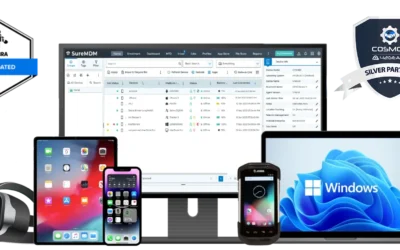Auto industry professionals know just how complex the logistics of operating an automotive factory can be. The typical facility involves workers carrying out many different and complicated tasks at the same time. Forklift drivers, for example, must constantly transport pallets, barrels, boxes and bins full of parts throughout a manufacturing plant while adhering to schedules and safety regulations.
Despite the challenges, automotive plant managers have evolved sophisticated strategies over the years to increase their operational efficiencies. Logistical and organizational improvements have done a lot to cut costs and keep automakers competitive in the ever-expanding global marketplace.
That said, there’s always room to improve. If you don’t take advantage of new cost-saving opportunities quickly, your competition surely will. Some of the biggest improvements in auto operations can be made by adopting Radio Frequency Identification (RFID) technology to improve asset management.
Benefits of RFID in Automotive Industry
RFID in automotive industry involves attaching RFID tags to virtually any component of an operation and tracking the tagged assets using RFID software and mobile computers. Auto plant managers can attach RFID tags to tools, containers, parts, shipping boxes and other supplies – allowing even the tiniest of components to be monitored and tracked at all times.
Here are some of the clearest benefits of RFID asset management at an automotive plant:
- Increased equipment and tool utilization: An RFID system allows workers to locate tools quickly and easily, preventing the need to stop the assembly line and search for a misplaced tool. It can also help provide insight into how often certain equipment is used, allowing you to better control the depreciation of high-value assets.
- Cost savings: When tools, equipment or parts are not easily locatable, it leads to wasted man-hours, asset replacement costs and potential mistakes – all of which negatively affect an automotive operation’s bottom line. By preventing these situations with RFID, auto companies quickly see an ROI. In fact, according to Robert Palevich’s The Lean Sustainable Supply Chain, North American transmission manufacturing plant Baluff saved $2 million per year after implementing an RFID tool management system.
- Theft prevention: No manager wants to think about it, but internal shrink is a real problem that affects businesses in many different industries. RFID help track supplies and tools in the auto industry to increase employee accountability and make sure that assets don’t leave the building.
- Better adherence to safety regulations through scheduled maintenance: RFID can help managers keep track of different tools and machinery to ensure they are brought in for scheduled maintenance. This ensures that essential items are well-maintained, last longer, and don’t cause accidents and injuries.
- Easy shipping tracking: One of the biggest benefits of RFID involves the huge increase in visibility that can be achieved in shipping and receiving. You will know exactly where different items are in your supply chain at all times.
- Instant restocking of supplies to prevent shortages: Concerned that you’re running low on supplies and don’t have time to do an inventory? With RFID, this problem disappears. Automotive managers can get constant visibility into inventory levels and can configure their systems to automatically reorder supplies to prevent shortages when supplies run low.
MSM Solutions’ PortalTrack for Automotive Asset Management
As automotive manufacturers struggle to keep a competitive edge, many have already incorporated RFID into their asset management systems. RFID ensures that parts and supplies don’t get lost in the shuffle of a busy and complicated factory. This means a decrease in reduced downtime, improved tool utilization, an improved bottom line, and instant reordering before a restocking emergency hits. MSM Solutions’ customizable PortalTrack software can bring these RFID benefits and more to any automotive manufacturing operation. Contact us today to find out how we can help optimize your facility.


